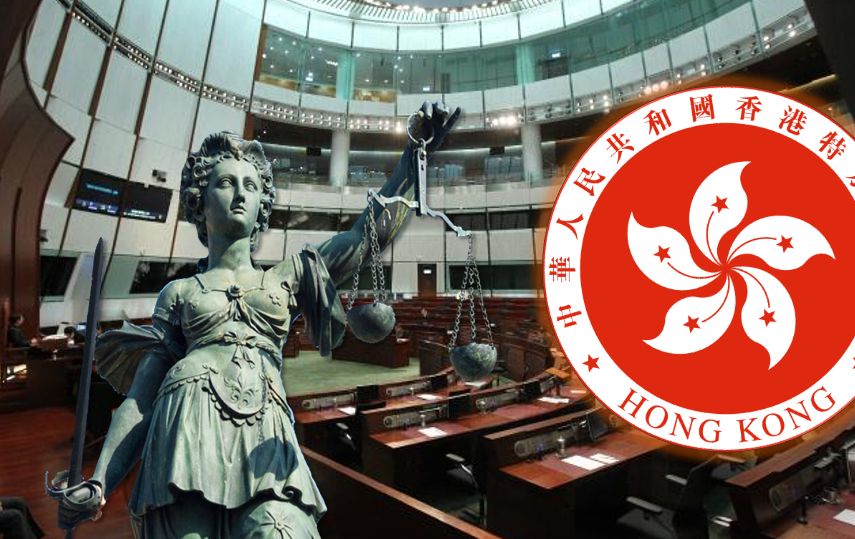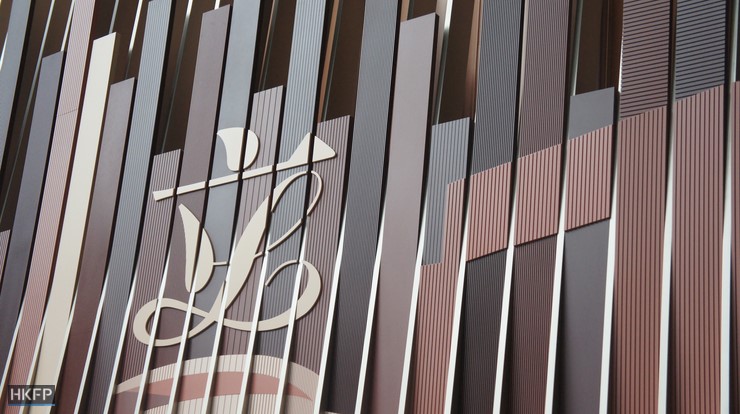Spokesmen and apologists for the Hong Kong government have gone to great lengths to establish that Hong Kong does not have, and never had, separation of powers. This is a red herring. The idea that the English constitution in the 18th century separated the powers of the executive, legislature and judiciary was promulgated by a French political theorist, the Baron de Montesquieu. As far as England is concerned, this was not true then, and it is not true now.
The idea was nevertheless influential. It is to some extent, though not completely, a feature of the American constitution. One must in fairness to the Baron note that at the time he was comparing the English arrangements with those found in the rest of Europe, which with a few exceptions involved absolute monarchy.

The reason why this has come up is the application for judicial review of the chairman of LegCo’s decision to ask people whose first attempt to take the oath was not to his satisfaction to have another go. The application should have been summarily rejected. Hong Kong courts do not have, and have never had, the power to consider and adjudicate on the proceedings of the legislature, not because of the separation of powers, but because of parliamentary privilege.
Before we get into English legal history, let us start with the Basic Law of the Hong Kong SAR, a favourite spot for opponents of Youngspiration. Article 87 of this masterpiece states that “In criminal or civil proceedings in the Hong Kong Special Administrative Region, the principles previously applied in Hong Kong and the rights previously enjoyed by parties to proceedings shall be maintained.” I take this to mean that, unless otherwise stated elsewhere in the Basic Law, we are all where we were before 1997. This applies to LegCo as well as to the rest of us. And LegCo, under English law, enjoyed the absolute right to regulate its own proceedings, free from judicial oversight.

This can be traced, if you enjoy such things, back to the historic occasion in 1642 when King Charles I turned up in the House of Commons and asked the Speaker (the chairman of the House) to point out five members he wished to arrest. The then Speaker, one William Lenthall, replied that, “I have neither eyes to see nor tongue to speak in this place but as the House is pleased to direct me, whose servant I am here.”
More helpfully, we can refer to the Bill of Rights – the first one, passed in 1689 – which stated that “the freedom of speech and debates or proceedings in Parliament ought not to be impeached or questioned in any court or place out of Parliament.” Note the use of the word proceedings.
This is an important principle, because it means that however objectionable you find a law, you cannot appeal to the courts to overrule it because of some procedural deficiency in its passage through the legislature. Because of the practical importance of this principle, it has been preserved to this day. The UK Government’s White Paper on Parliamentary Privilege, published in 2012, says that “parliamentary privilege is an essential part of our parliamentary democracy. It ensures that Members of Parliament are able to speak freely in debates, and protects Parliament’s internal affairs from interference from the courts.”

This phrase occurs quite often in the White Paper. Further on it notes the “exclusive cognisance of each House of Parliament (sometimes referred to as “exclusive jurisdiction”) – which broadly translates as the right of each House to regulate its own proceedings without interference from the courts.”
And later, “as with freedom of speech, the Government believes that it continues to be an important manifestation of parliamentary sovereignty that the two Houses are free to determine and enforce their own procedures without reference to the courts; and that this necessarily includes the regulation of conduct in those proceedings.”
For the historical roots of this aversion to judicial oversight we can turn to the judgement of the Court of Queen’s Bench in Bradlaugh v. Gossett, which was decided way back in 1884. The then Chief Justice said, “What is said and done within the walls of Parliament cannot be inquired into in a court of law… The jurisdiction of the Houses over their own members, their right to impose discipline within their walls, is absolute and exclusive.”
Stephen J, concurring, quoted other judges in a previous case. Lord Denman had said: “Whatever is done within the walls of either assembly must pass without question in any other place,” and sundry other judges had made the same point in rather more words. They were in turn following Blackstone, an 18th century authority, who wrote: “The whole of the law and custom of Parliament has its original from this one maxim, ‘that whatever matter arises concerning either House of Parliament ought to be examined, discussed and adjudged in that House to which it relates, and not elsewhere.’”

I conclude that the English courts have never had, and never sought, jurisdiction over what happened in the legislature. It must follow that Hong Kong courts never had such jurisdiction either. The application for judicial review meets a fundamental obstacle. What happens “within the walls” of LegCo has always been beyond the jurisdiction of the courts. We must of course bear in mind that in the last analysis, the law is whatever the latest judge to consider the matter decides.
So it is not impossible that 500 years of legal history will be quietly disregarded and some judge or judges will decide that he or they can consider and adjudicate upon rulings of the LegCo chairman. But if I were a judge, I would be quite happy to discover that I was not required, indeed was actually prohibited by precedent, from dabbling in what is fundamentally a political dispute, not a legal one. We’ll see.
